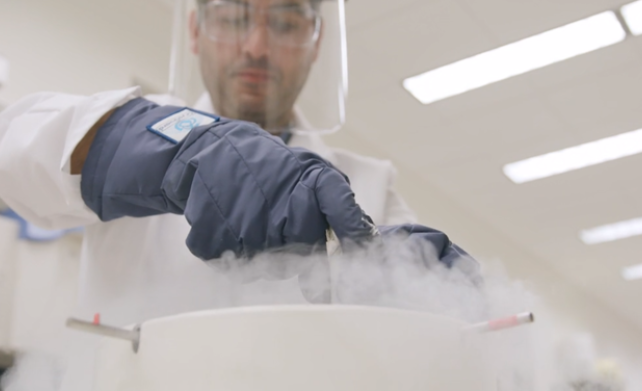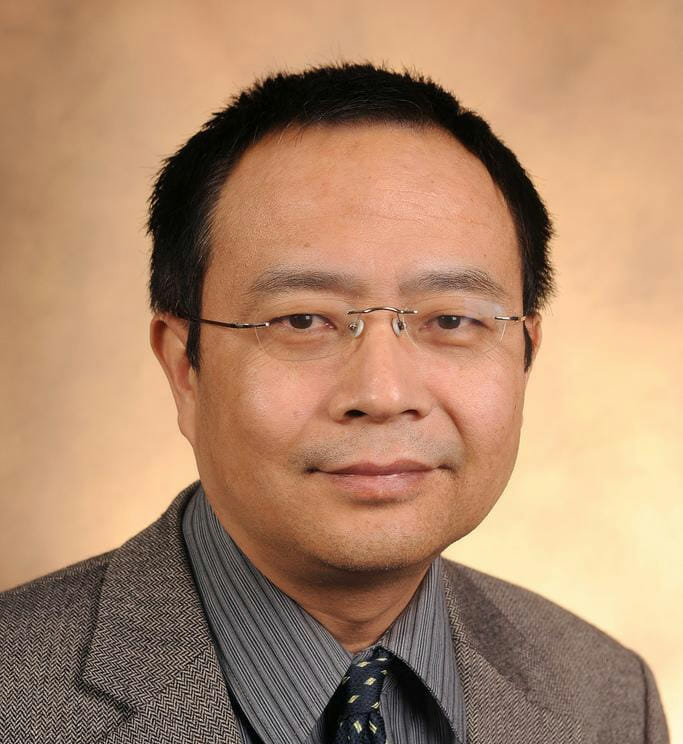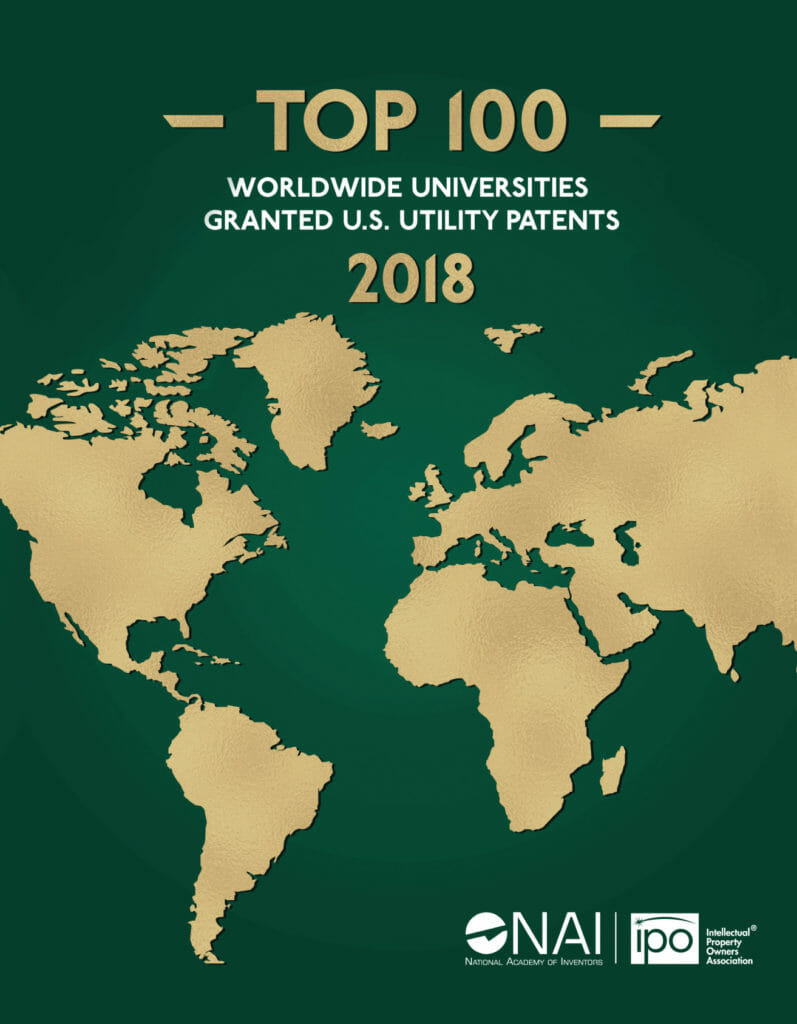
Big backing for ASU startups in 2019
Skysong Innovations FY19 Annual Report
In record-breaking year, ASU spinouts raise $109 million in external funding

Skysong Innovations was formed in 2003 as the exclusive intellectual property management and technology transfer organization for Arizona State University. Freed from typical institutional constraints within universities, Skysong Innovations has worked to evolve and enhance the university technology transfer model, with an emphasis on speed to market, flexibility and deal flow.
Each year, ASU ranks among the top-performing U.S. universities in terms of intellectual property inputs (inventions disclosed by ASU researchers) and outputs (licensing deals and start-ups) relative to the size of the university’s research enterprise. In FY19, ASU inventors working with Skysong Innovations again set new records for intellectual property development and transfer:
| FY08 | FY18 | FY19 | FY08-FY19 % increase | |
| Invention Disclosures | 146 | 285 | 301 | 106% |
| U.S. Issued Patents | 14 | 123 | 129 | 821% |
| Startups | 1 | 17 | 18 | 1700% |
ASU researchers and other entrepreneurs have now started more than 140 new companies, which together have attracted almost a billion dollars in outside investments.
“ASU has an entrepreneurial culture that permeates the entire institution, encouraging and enabling faculty, staff and students to try their ideas in the market,” said Augie Cheng, CEO of Skysong Innovations. “The smaller subset of companies launched through Skysong Innovations represent some of the most important technologies with the greatest potential for societal impact.”
Video spotlights impact
Technology transfer is the critical linkage to help move university innovations into the market where they can have a real-world impact. To help better tell that story of impact and innovation, in 2019 we filmed a video with some of our staff, ASU inventors and the people running startups launched from ASU:
ASU startup companies receiving investments in FY19
Aural Analytics
Applications that use speech signals to detect subtle changes in brain health that impact cognitive ability, motor control, respiratory support, and other functions
Charlot Biosciences
Tools to help identify predictive bio-signatures of disease
Curtiss Healthcare
Novel vaccines to prevent critical infectious diseases in animals and humans
CYB3RCON (IntelliSpyre)
Use of artificial intelligence approaches to model, quantify, and predict cyberattacks by malicious hackers
Gemneo Biosciences
Single-cell genomic profiling technology
HealthTell
Proprietary immune profiling technology to analyze the immune system’s response against disease
Heliae
Microalgae products and solutions that enhance soil, plant, animal, and human health
Hoolest Performance
Drug-free stress blocker through vagus nerve stimulation
iNanoBio
Advanced 3D nanopore – transistor device for sequencing the whole human genome
Nanobot Biosciences
Autonomous DNA origami technology for cancerous tumor targeting and destruction
OncoMyx
Technologies targeting hematologic and solid tumors based on a unique oncolytic virus called myxoma
Smartiply
Building first Fog Computing Platform
Studio Biotherapeutics
Antibody-based therapeutics for neurodegenerative diseases
SwiftCoat
Nanoparticle coating process for myriad of products
TF Health (Breezing)
Precise real-time metabolic assessment in a self-contained wearable device
Xtretch
Origami (stretchy) battery technology to power wearable electronics
Zero Mass Water
Utilizing solar hydropanels to produce drinking water
Zxerex
Low-cost, noninvasive solution to detect impairment from drugs within the workplace
ASU startup modifies rabbit virus to kill cancer cells
OncoMyx Therapeutics is developing oncolytic immunotherapies to treat cancer, based on the work of Grant McFadden, director of the Center for Immunotherapy, Vaccines and Virotherapy at the Biodesign Institute. McFadden’s team has successfully programmed a virus, which only lethally infects rabbits, to kill human cancer cells without harming normal cells.
“OncoMyx has the potential to become the best-in-class oncolytic virus approach for treating a wide range of cancers,” said Cheng. “The company has tremendous IP, experienced leadership, and funding commensurate with the technology’s promise. They are a true shining star in the Arizona biotech startup scene.”
“Professor McFadden and his collaborators have developed a robust oncolytic virus technology, supported by preclinical and clinical research, that we believe could be a new pillar of cancer care,” said Steve Potts, co-founder and CEO of OncoMyx. “Completing this licensing agreement is an important milestone for advancing this technology into new potentially life-saving treatments for cancer. It was great to work with the Skysong Innovations team on this licensing, because they understand not just the patent portfolio but what an inventor and entrepreneur needs to spin out a company and reach the next level.”
Serial entrepreneur puts Biodesign
and Engineering technologies into play

Mindset Medical is a Phoenix-based digital health startup that licensed ASU’s portfolio of noncontact physiological monitoring technologies developed by Dr. N.J. Tao, director of the Center for Bioelectronics and Biosensors at the Biodesign Institute, and a professor in the Ira A. Fulton Schools of Engineering.
Dr. Tao is a serial entrepreneur. In 2012 he co-founded Breezing, a company that provides a portable metabolic tracker to enable healthier lifestyles, with Dr. Erica Forzani, who also has joint appointments at the Biodesign Institute and Fulton Schools on Engineering. Skysong Innovations has also licensed other Tao technologies for the monitoring and treatment of chronic respiratory diseases.
Mindset Medical has a product in the market and has raised significant seed funding, with experienced management selected from the pool of Entrepreneurs-In-Residence (EIRs) associated with the ASU Startup Mill.
Startup Mill is an exclusive program jointly run by Skysong Innovations and ASU E+I. It invites the highest-potential student- and faculty-led startups within the university, as well as select startups from outside the university, to receive top-tier entrepreneurship support from ASU.
“When an inventor decides to pursue a startup, we help them understand and navigate some of the challenges that come with having a successful company,” said Charlie Lewis, senior VP for Venture Development. “We learned a long time ago that licensing a patent and then wishing the startup good luck wasn’t enough. That’s why we created the Startup Mill, to connect high-potential ASU startups with successful entrepreneurs who can provide advice, support and help run a company.”
Economic impact
ASU innovations are helping to power the Arizona economy to new heights
The mission of Skysong Innovations is multifaceted and focused on not just scientific excellence, but also on economic impact. To that end, each year, the organization commissions the Seidman Research Institute to perform an economic impact analysis on ASU’s tech transfer activities.
This year’s Seidman report examined 34 ASU-linked companies, 30 of which are true “spinouts” – based on intellectual property developed at ASU – while four are startups that received significant assistance from Skysong Innovations, in terms of venture financing and other support. Arizona’s economy benefits greatly from these developing entities.
From 2016-2019, as a result of the operations of Skysong Innovations and these 34 ASU-linked companies, Arizona’s economy gained a cumulative:
- $575 million in gross state product
- $387 million in labor income
- 5,842 job-years (equivalent to one person having a job for one full year)
- $52 million in state and local tax revenues
The cumulative economic impact of these entities is projected to reach $1.16 billion by the end of 2022.
Top ten for patents

The nation’s No. 1 school for innovation according to U.S. News & World Report is now top 10 for issued U.S. patents among worldwide universities.
ASU earned 130 patents in 2018, up from 100 the previous year, propelling it from 17th to 10th (tied with the University of Michigan), according to the U.S. National Academy of Inventors (NAI) and the Intellectual Property Owners Association.
Other universities in the top 10 include Stanford University, MIT and Harvard.
“This shows what can be accomplished when you empower the academic community to engage in use-inspired research focused on societal challenges,” said Sethuraman Panchanathan, executive vice president of Knowledge Enterprise and chief research innovation officer at ASU.
Patents awarded to ASU in 2018 include technologies for flexible batteries — deformable batteries based on the Japanese paper-folding art known as origami — and an immunosignature-based diagnostic for cancer in dogs developed by ASU scientist Stephen Albert Johnston.
ASU faculty startup challenge
completes second year
In 2018, Skysong Innovations launched the ASU Faculty Startup Challenge, a pilot startup acceleration program that is designed to stimulate the formation, incubation, and launching of new spinouts founded by ASU faculty researchers or postdoctoral students and based on intellectual property created at ASU.
Each year, up to six startups are chosen for seed investments. A judging panel of seasoned, successful entrepreneurs selects the winners. In 2019 the selected investigators and their companies were:
Jim Adams – Autism Diagnostics (Grand Prize: $50K)
This startup is working to develop a first-ever medical test for the diagnosis of autism. The group has developed two metabolomics tests for autism that can also assess treatment efficacy in clinical trials. Therefore, the test could diagnose children while also helping to guide personalized medical interventions.
Mariana Bertoni – Crystal Sonic (Finalist: $25K)
Next-gen technology in the areas of electric vehicles, renewable energy and telecom (5G networks) are limited by processing and materials costs. Harnessing the power of sound, Crystal Sonic specializes in slicing high-value semiconductors to reduce manufacturing costs by more than 75%. This proprietary process reduces material waste, resulting in significantly increased yield coupled with higher quality for a wide array of emerging product areas.
Joseph Chao – Thery (Finalist: $25K)
For diabetics and prediabetics, current glucose measuring devices are painful and cumbersome to use. Thery has developed a biocompatible polymer that can be applied to a contact lens to measure glucose levels in a painless and easy-to-use manner. The technology is compatible with existing contact lenses, making adoption of Thery’s smart lenses a simple transition for current contact lens wearers.
Owen Hildreth – H-Solutions (Finalist: $25K)
Metal 3D printing is projected to be a $25 billion/year industry by 2025. Currently, post-processing accounts for 46% of the total production costs. H-Solutions has developed a simple method to remove support structures from 3D-printed metal parts with almost no manual labor, potentially saving billions in processing and materials costs.
All founders who go through the program are eligible to receive ongoing support through ASU Entrepreneurship and Innovation (E+I) and the ASU Startup Mill, a collection of experienced entrepreneurs and executives who provide mentoring and go-to-market, executive-level leadership.